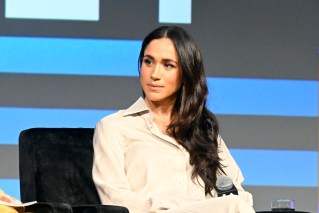Game of Thrones-like series, The Story of Yanxi Palace, takes China by storm with 17 billion streams

Wei Yingluo, the central protagonist of the Chinese series, has finally risen to the top of the concubines. Photo: YouTube/MZTV
An attempted murder by poison, vengeful scheming by those ready to do anything to achieve power, tragic love stories and plot twists that keep you on the edge of your seat.
But it’s not Game of Thrones, it’s a hit Chinese series with more than 17 billion streams online — The Story of Yanxi Palace.
Best described as a cross between Game of Thrones and The Crown, minus the graphic violence and nudity courtesy of Chinese censorship, Yanxi Palace has taken China and Chinese expats by storm.
Since its initial July 19 drop on iQiyi — a streaming service that provides content for free with ads and ad-free episodes and exclusive content to members — the 70-episode epic has become China’s No.1 web-based drama series.
What’s it about?
Set in the 18th-century Qing dynasty — when elegant Manchurian silk robes and lavish headpieces were the norms of palace living — the story follows a badass, witty maid from a humble background on a journey of revenge.
The protagonist, Wei Yingluo — who is portrayed by Wu Jinyan — enters the royal palace to punish the killer of her sister, and competes with other concubines for Emperor Qianlong’s favour.

The title screen of the Chinese palace scheming drama the Story of Yanxi Palace. Photo: YouTube/MZTV
Revolving around a concubines-backstabbing story engine, Yanxi Palace is a cautionary tale about jealousy, relentless revenge, imperial power struggles, crime and romance.
Some also see it as a wry testimony of how polygamous relationships fail in the Forbidden City.
Yanxi Palace is part of a popular television genre in China, called palace scheming drama, or “gong dou ju” in Chinese.
But in Yanxi Palace, the plot developments are faster compared with the regular, slow-burner style of a palace scheming show, making the twists and turns of the machinations more accessible for a contemporary audience.
Lawrence Wong, who plays male servant Hai Lanca, put the success of the drama down to great timing and high-quality production across the board.
“Our script was really good. Our costumes were really good. The set was really good. The lighting, the actors, everything was on point,” he said.
Despite being a period drama, the series has reinvigorated the genre with a contemporary zest.
Mr Wong said it is these “modern elements” that have added to the shows popularity.
Central character Wei — the maid-turned-concubine — revolutionises the stereotypical portrayal of women in similar palace scheming dramas, where the female protagonist tends to be simply pure, innocent and helpless.

Concubines in The Story of Yanxi Palace. Photo: Youtube/MZTV
Contrarily, Wei is quick-tempered, cunning, resourceful — an atypical femme fatale, fixating on solving crime and punishing whoever has wronged her.
“She’s not the typical kind of female character — poor, weak, she can’t do anything for herself,” Mr Wong said.
“She is strong. She fights for what she wants. She is clever. She has a lot of ideas to fight back with the injustice she has suffered.”
In a unique twist on traditional power dynamics, the needs and desires of the emperor are rendered secondary to Wei’s.

Lawrence Wong as Hai Lanca in The Story of Yanxi Palace. Photo: Lawrence Yong/The Story of Yanxi Palace
She is a rule-breaker, and her disregard for authority and hierarchy, as well as her ultimate success, give the Chinese audience immense satisfaction and even a sense of escapism.
Her struggle to the top offers some viewers a temporary relief, even if her swift rise through the social class has become increasingly difficult to replicate in today’s China.
Why is it so popular?
In just under two months, Yanxi Palace has attracted an average of 130 million views per episode on iQiyi and has, at the time of writing, been streamed more than 17.14 billion times according to Maoyan, the Chinese online ticketing and statistics provider.
But this huge success would be no surprise to the show’s producers, who according to the South China Morning Post, used data research of past audience patterns to deem that the show would be a massive success.
They also researched the best way to release the series in China’s huge stream-based market, choosing to drop two episodes weekly on the streaming service available for free users, rather than exclusively to paid members.
Now, being available in more than 70 countries worldwide via broadcast deals and sites like YouTube, Yanxi Palace is one of the most widely distributed series produced in China, according to iQiyi.
The series has also taken a different approach to production and budgeting in the wake of controversy around the huge fees paid to secure top stars.
Chinese production houses have been paying millions to lock in stars for their series, leading to multiple cases of tax fraud and evasion.

Lawrence Wong, who plays Hai Lanca, said the costumes, sets and production values added to its popularity. Photo: Lawrence Yong/The Story of Yanxi Palace
The real-life drama has even swept up one of China’s biggest stars, Fan Bingbing, who has been given a 0 per cent social responsibility ranking after she was publicly linked to tax evasion earlier this year.
iQiyi chief executive Gong Yu told the South China Morning Post in August that the company was intent on doing things differently with Yanxi Palace, focusing much of the budget on creating exquisite traditional costumes and grandiose set designs, rather than on attaining A-list stars.
He told the Post that the success of Yanxi could be “a turning point” for the industry in China, where high-quality production is more important than celebrity stars.
Ancient arts and crafts are woven into the plot, such as Manchurian embroidery, Suzhou Silk and Kunqu opera, which is on the UNESCO Intangible Cultural Heritage of Humanity list.
“I think period dramas are particularly popular in China because they retain a certain culture of China that a lot of Chinese can relate to,” Mr Wong said.
“Not just Chinese from China, but Chinese people all over the world. When they watch a period drama or period movie immediately they feel like, ‘Oh that’s my culture’. It’s something that all of us take pride in.”
The series’ muted colour palette featuring a grey hue has even sparked a trend of clothing and cosmetics products displaying similar tones, which have been compared to those used by the 20th century Italian painter Giorgio Morandi.

A screenshot of Alibaba Taobao results from a search for Yanxi Palace. Photo: Alibaba Taobao
As is often the case with popular series in the Western market, Yanxi merchandise and products are extremely popular in China.
A search on Alibaba’s Taobao shopping platform pulls 100 pages of products ranging from replica jewellery items worn by characters to lipsticks used by a popular concubine in the show.
According to Chinese state media site the Global Times, the show has even lead to an increase in visitor numbers at the Palace Museum in Beijing.
And there is speculation that Chinese productions could in the future find a wider audience even in English-speaking countries.
“Honestly the productions in China are so good. They are getting better day by day, year by year,” Mr Wong said, adding that with Chinese people scattered all over the world, there is already a large audience in places like Australia.
“Plus because of the sheer size of China you can’t help but notice the things we are doing right here.”








